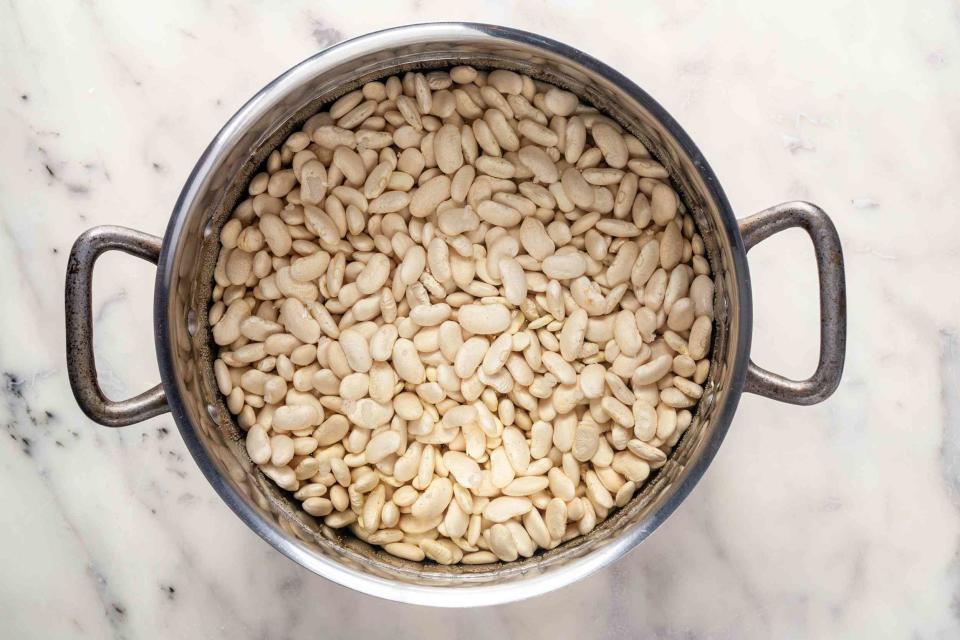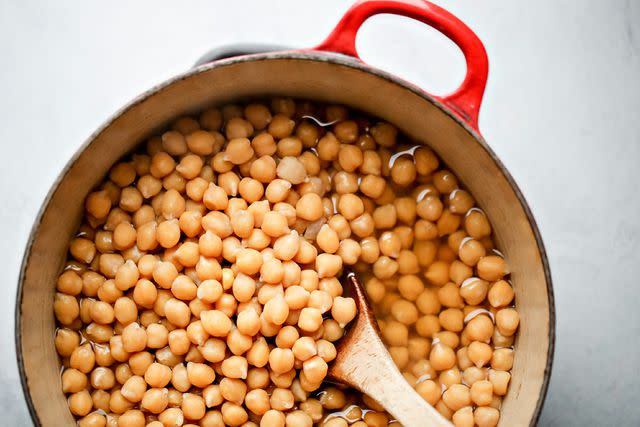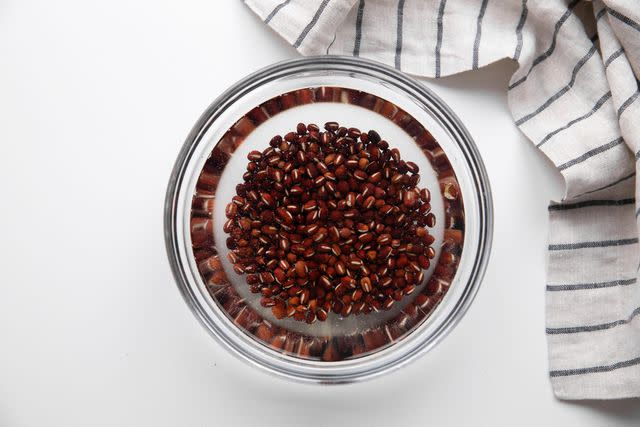The One Reason You Don’t Have To Soak Dried Beans
It's an age-old dilemma and a point of hot debate: to soak or not to soak? Here's what the experts say.

Simply Recipes / Sally Vargas
Even as a culinary professional and avid home cook, there’s something about cooking dried beans that has always intimidated me. The beans themselves are seemingly innocent, but it’s the many opinions that come with just how to cook them that frankly stress me out.
Are they better cooked on the stovetop or in the oven? Or what about using an appliance like a slow cooker or Instant Pot? And above all: Do you really need to soak dried beans before cooking them?
If you, too, are stumped, I did the investigative work for you by reaching out to an expert to find out. Lesley Sykes is the co-founder and CEO of Primary Beans, which sources heirloom and organic dried beans that run the gamut from classic chickpeas to rare Chaparro black beans. Here’s everything you need to know about soaking dried beans.
Should You Soak Dried Beans?
The answer from Lesley is no! “Through various tests, we’ve found that presoaking is an unnecessary step that makes bean cooking more time intensive without any extra reward.”
There’s one exception: “Soaking can help revive very old dried beans so they cook more quickly and evenly,” says Lesley. This explains why bean soaking has become such a common practice among home cooks over the years, particularly in the United States.
“Dried beans are living, breathing seeds that started out as fresh produce before being dried in their pods to become the staple we all have in our pantries. Beans don’t fly off the shelf [in America] as quickly as they do in countries like Mexico, for example, so beans on grocery store shelves are known to be greater than two years and up to even five years old. My hunch is that soaking dried beans became a popular practice passed down through generations that were likely using these stale beans to begin with.”
If you’re buying dried beans from a reputable source like Primary Beans or Rancho Gordo, you can feel confident that they're fresh and therefore really don’t need to be soaked. However, if you’re buying a standard bag of beans at the grocery store that may be collecting a bit of dust, a presoak will help them cook faster and more evenly.

How You Cook Your Beans Might Matter
Soaking beans definitely won’t save you time in the kitchen if you rely on a pressure cooker or Instant Pot to cook dried beans, so there’s really no need to do it unless your beans are exceptionally old.
However, “when using stovetop or slow cookers methods, soaking does cut down the cooking time by around 25 and up to 50 percent depending on the bean variety, so if your goal is to minimize the time the beans are actively cooking, you might consider a presoak. Although if you look at the total time between soaking and cooking, it’s actually greater than if you had skipped the soak altogether—food for thought for those passionate soakers out there!” says Lesley.
Get Recipe with Title: How to Cook Dried Beans

Simply Recipes / Frank Tiu
Good News About Lectins
Lectins are a type of protein that is present to a varying extent in beans that tend to worry many home cooks because they can cause digestive problems.
“While it is true that lectins can be toxic in their raw form, thoroughly cooking beans until tender at high temperatures deactivates and reduces lectin content to safe levels. If slow cooking at low temperatures is your preferred method, you may want to boil beans for 10 minutes beforehand as an assurance,” says Lesley.
“While soaking can help reduce lectin content, it is not as effective in eliminating lectins compared to cooking. It’s worth noting, however, that some individuals may have specific dietary sensitivities that require them to limit or avoid lectins.”
Read the original article on Simply Recipes.

